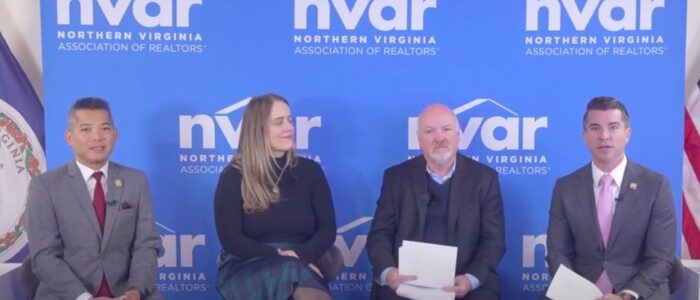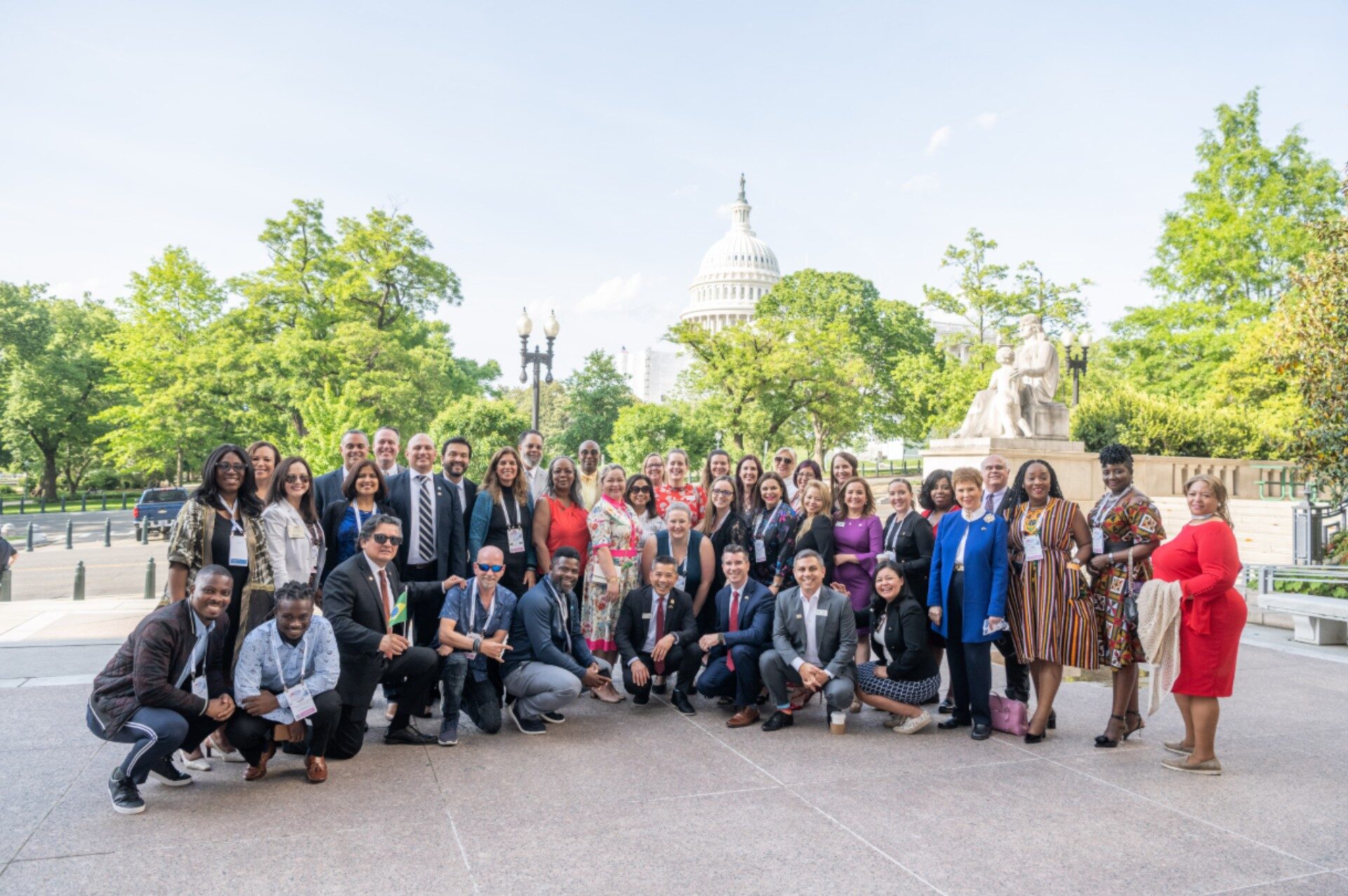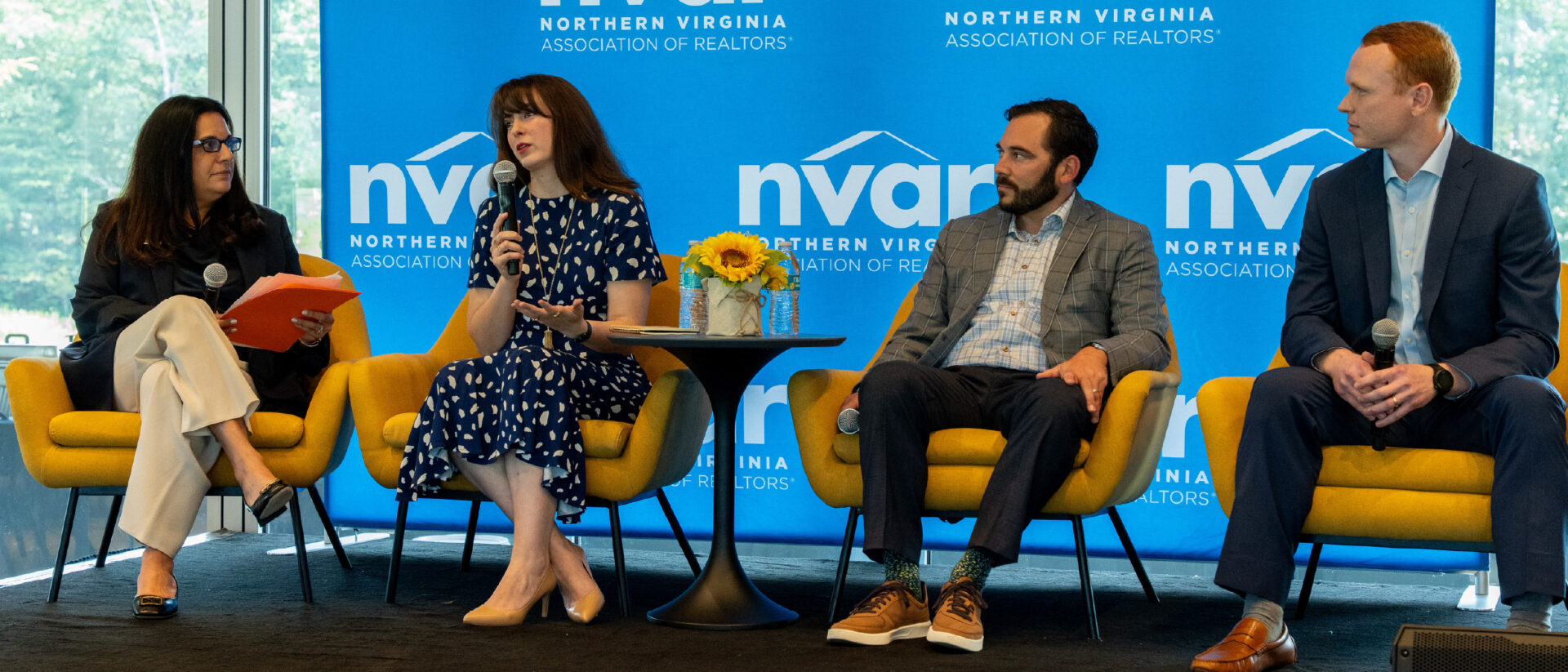Recent News
Market Statistics: August 2025
The Northern Virginia Association of Realtors® reports on August 2025 home sales activity for Fairfax and Arlington counties, the cities…
September 10, 2025

National Market Statistics Comparison: July 2025
The Northern Virginia Association of Realtors® reports on July 2025 home sales activity in Northern Virginia compared to real estate activity…
August 25, 2025

Market Statistics: July 2025
Press Release
August 13, 2025

National Market Statistics Comparison: June 2025
The Northern Virginia Association of Realtors® reports on June 2025 home sales activity in Northern Virginia compared to real estate activity…
July 24, 2025

Market Statistics: June 2025
The Northern Virginia Association of Realtors® reports on June 2025 home sales activity for Fairfax and Arlington counties, the cities of…
July 10, 2025

Renew Your NVAR Membership Today!
Continue your membership and keep reaping the benefits of belonging to the professional association that is dedicated to elevating Realtor ®…
August 7, 2025

Stay Cool, Stay Connected: Your Summer Sidekick is the NVAR App
Summer’s heating up, and so is the calendar at NVAR! Whether you’re between showings or poolside with a lemonade, the…
July 11, 2025

Celebrating Our 2024 Champions: Jonathan Coles, Michelle Doherty, Roger Nakazawa, and Tom Stevens Inducted into the RPAC Hall of Fame
We are proud to recognize four members of the Northern Virginia Association of Realtors® (NVAR) — Jonathan Coles, Michelle Doherty,…
May 22, 2025

NVAR Champions Homeownership at the 2025 NOVA Housing Expo
On Saturday, April 12, the Northern Virginia Association of Realtors® (NVAR) proudly sponsored and participated in the 2025 Northern Virginia…
April 14, 2025

FAQs on NAR’s New Multiple Listing Options for Sellers Policy
The National Association of REALTORS® (NAR) recently announced that it will keep its Clear Cooperation Policy (CCP) in place and…
March 28, 2025

FIVE FOR FRIDAY: A Weekly Roundup of Public Policy News
Welcome to FIVE FOR FRIDAY: A weekly roundup of public policy issues and headlines from around the Northern Virginia Region,…
July 25, 2025

FIVE FOR FRIDAY: A Weekly Roundup of Public Policy News
Welcome to FIVE FOR FRIDAY: A weekly roundup of public policy issues and headlines from around the Northern Virginia Region,…
July 18, 2025

What Realtors® Should Know About the Virginia Resale Disclosure Act for HOAs and Condos
Thinking of listing or buying in an HOA or condo community? Don’t miss this update: the Virginia Resale Disclosure Act…
July 18, 2025

FIVE FOR FRIDAY: A Weekly Roundup of Public Policy News
Welcome to FIVE FOR FRIDAY: A weekly roundup of public policy issues and headlines from around the Northern Virginia Region,…
July 11, 2025

NVAR Named Third Largest Business Advocacy Group in the Washington DC Region!
Big news! NVAR has been named the third largest business advocacy group in the Greater Washington region by the Washington…
July 1, 2025

Standard Forms Changes — July 1, 2025
The NVAR Board of Directors has approved new forms and forms changes, as proposed by the NVAR Standard Forms Committee.…
June 4, 2025

January 1, 2025, Standard Forms Updates
The NVAR Board of Directors has approved the below new forms and forms changes, as proposed by the NVAR Standard…
November 25, 2024

Special Standard Forms Changes – August 14, 2024
The NVAR Board of Directors has approved the below new forms changes. The changes will be effective August 14, 2024.
August 5, 2024

Standard Forms Changes – July 1, 2024
The NVAR Board of Directors has approved the below new forms changes, as proposed by the NVAR Standard Forms Committee…
May 29, 2024

January 1, 2024 Standard Forms Updates
The NVAR Board of Directors has approved an update of the following forms changes, as proposed by the NVAR Standard…
November 28, 2023

Standard Forms Changes — July 1, 2025
The NVAR Board of Directors has approved new forms and forms changes, as proposed by the NVAR Standard Forms Committee.…
June 4, 2025

FAQs on NAR’s New Multiple Listing Options for Sellers Policy
The National Association of REALTORS® (NAR) recently announced that it will keep its Clear Cooperation Policy (CCP) in place and…
March 28, 2025

Judge Approves NAR Settlement in Sitzer/Burnett Case
The National Association of REALTORS®’ settlement resolving antitrust claims brought against NAR and others in the Sitzer/Burnett case has been…
November 27, 2024

January 1, 2025, Standard Forms Updates
The NVAR Board of Directors has approved the below new forms and forms changes, as proposed by the NVAR Standard…
November 25, 2024

November: Legal Hotline Questions of the Month
The NVAR Legal Hotline has received many questions regarding voiding and releasing sales contracts this fall. Refresh your skills with…
November 15, 2024

Looking for more expert analysis?
Virginia Association of Realtors
Lorem ipsum dolor sit amet consectetur. Lectus varius tincidunt malesuada posuere ornare congue. A vitae sit et semper pellentesque hac purus nunc vestibulum. Quam nisl enim.
National Association of
Realtors News
Lorem ipsum dolor sit amet consectetur. Lectus varius tincidunt malesuada posuere ornare congue. A vitae sit et semper pellentesque hac purus nunc vestibulum. Quam nisl enim.
Real Estate News
Lorem ipsum dolor sit amet consectetur. Lectus varius tincidunt malesuada posuere ornare congue. A vitae sit et semper pellentesque hac purus nunc vestibulum. Quam nisl enim.




